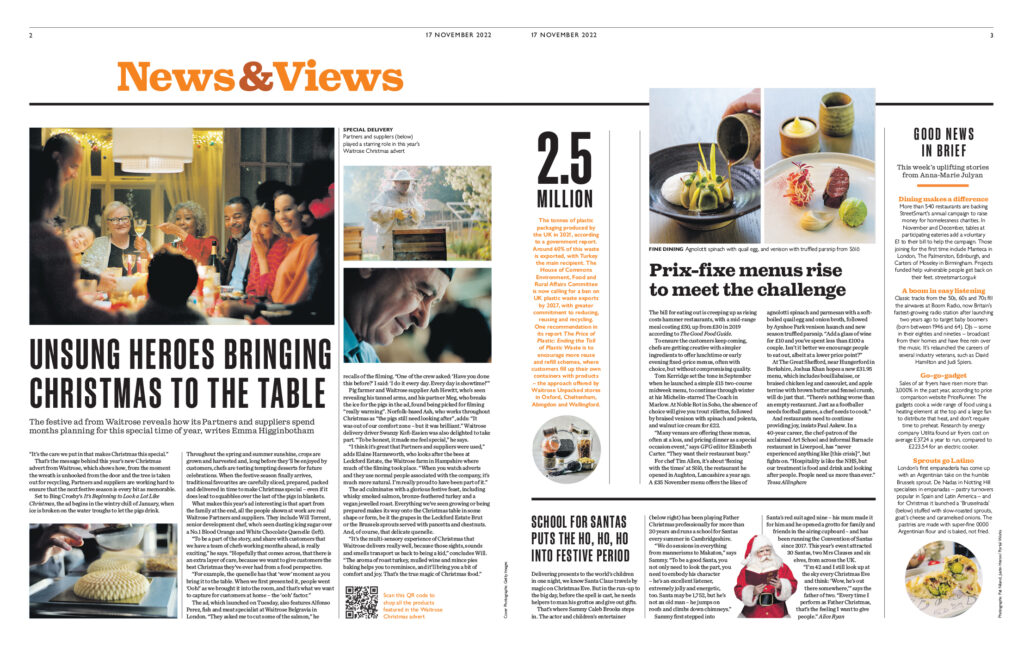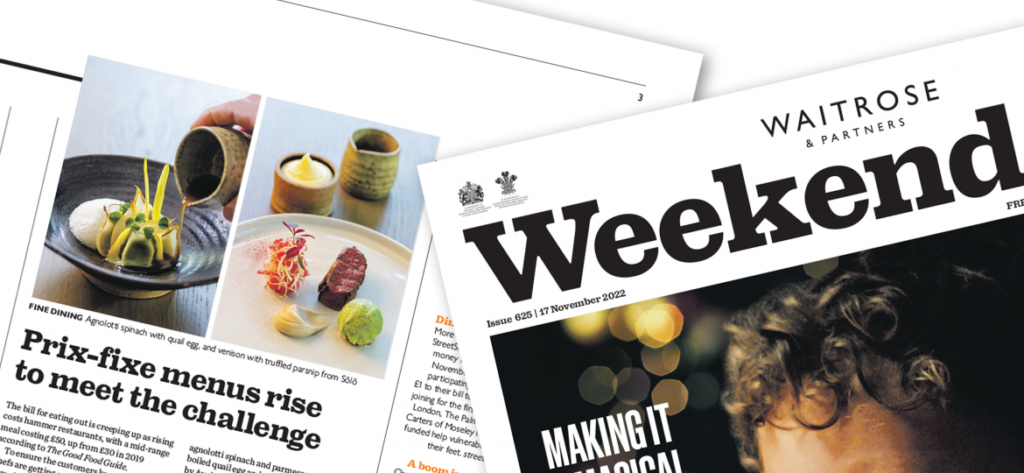WE WERE ABSOLUTELY DELIGHTED TO BE FEATURED IN WAITROSE WEEKEND MAGAZINE
The article we were featured in covered the rise of Prix-fixe menus, which are now becoming more common within the industry, to accommodate the rising costs consumers are now facing. Sadly for all of us, prices continue to rise, but at sō-lō we will always strive to make our menus as accessible as possible.
Please take a look at the great article below:
‘The bill for eating out is creeping up as rising costs hammer restaurants, with a mid-range meal costing £50, up from £30 in 2019 according to The Good Food Guide.
To ensure the customers keep coming, chefs are getting creative with simpler ingredients to offer lunchtime or early evening fixed-price menus, often with choice, but without compromising quality.
Tom Kerridge set the tone in September when he launched a simple £15 two-course midweek menu, to continue through winter at his Michelin-starred The Coach in Marlow. At Noble Rot in Soho, the absence of choice will give you trout rillettes, followed by braised venison with spinach and polenta, and walnut ice cream for £22. “Many venues are offering these menus, often at a loss, and pricing dinner as a special occasion event,” says GFG editor Elizabeth Carter. “They want their restaurant busy.”
For chef Tim Allen, it’s about ‘flexing with the times’ at Sōlō, the restaurant he opened in Aughton, Lancashire a year ago. A £35 November menu offers the likes of agnolotti spinach and parmesan with a softboiled quail egg and onion broth, followed by Aynhoe Park venison haunch and new season truffled parsnip. “Add a glass of wine for £10 and you’ve spent less than £100 a couple. Isn’t it better we encourage people to eat out, albeit at a lower price point?”
At The Great Shefford, near Hungerford in Berkshire, Joshua Khan hopes a new £31.95 menu, which includes bouillabaisse, or braised chicken leg and cassoulet, and apple terrine with brown butter and fennel crumb, will do just that. “There’s nothing worse than an empty restaurant. Just as a footballer needs football games, a chef needs to cook.”
And restaurants need to continue providing joy, insists Paul Askew. In a 40-year career, the chef-patron of the acclaimed Art School and informal Barnacle restaurant in Liverpool, has “never experienced anything like [this crisis]”, but fights on. “Hospitality is like the NHS, but our treatment is food and drink and looking after people. People need us more than ever.”
Tessa Allingham’



